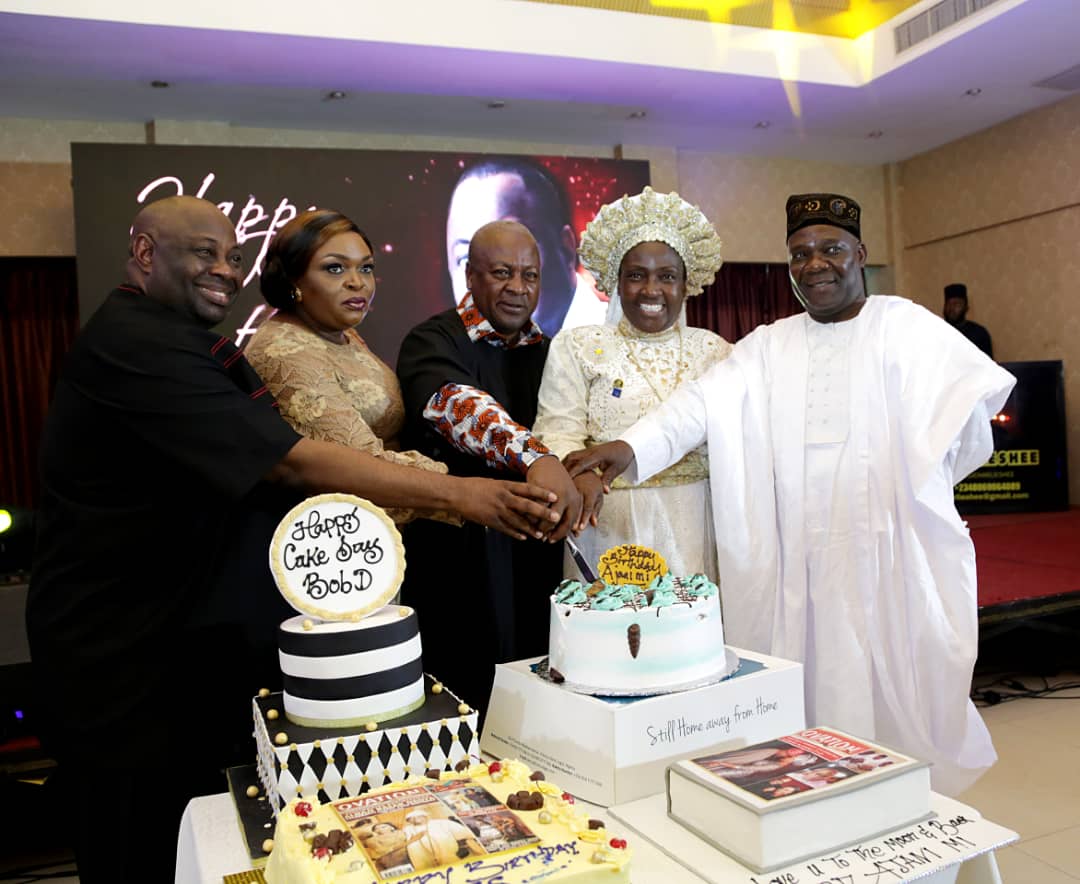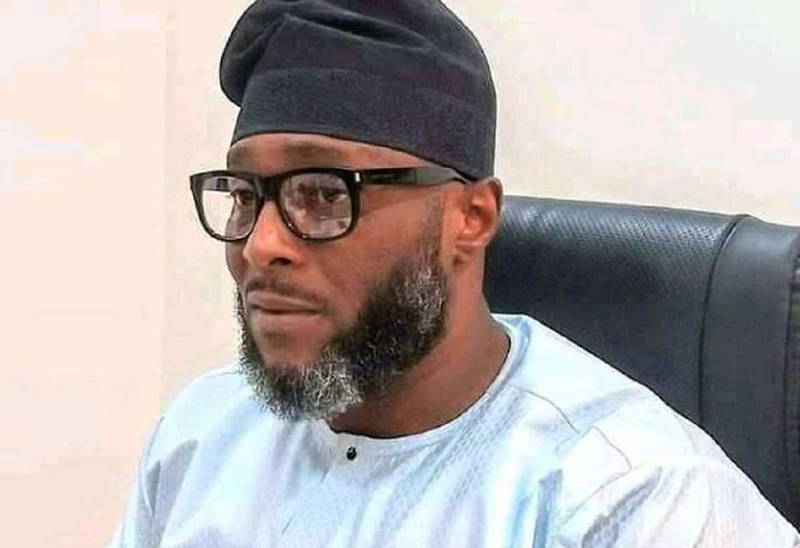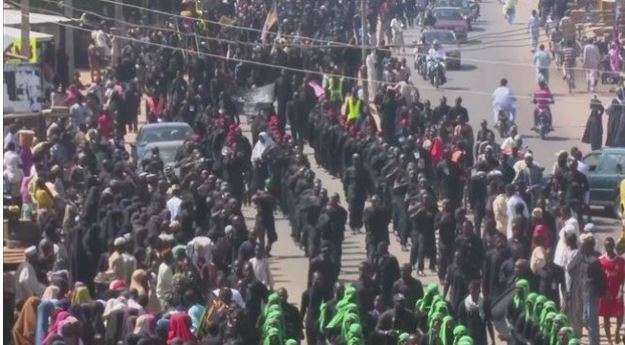By Dele Momodu
Fellow Nigerians, to say I love the former President of Ghana, John Dramani Mahama, is an understatement. Many have asked me what is so unique about this phenomenal African leader and that if he is that good, why did Ghanaians sack him from the Presidential office. My main reason for my adoration of this quintessential gentleman and iconic African statesman is simple and straightforward, I have a soft spot for cerebral and visionary politicians of which Mahama is one without any doubt. Incidentally, on the occasion of my 59th birthday on Thursday, I had the pleasure of also enjoying the company of another leader of the same ilk, Professor Yemi Osinbajo, Nigeria’s Vice President, who I also have tremendous admiration and respect for, as we were attending the same event in Lagos with President Mahama. More on that shortly.
I have had the privilege of accompanying President Mahama to speaking engagements in several continents and he never failed to deliver. Each time I have heard him speak, many times extempore, I have been amazed at the depth of the knowledge of whatever topic he is required to discuss and the accurate facts that he is capable of reeling off without reference to any notes. Not only is the delivery perfect, his eloquence is given greater fillip, force and effect by his diction, articulation and measured cadence.
To say Mahama is an accomplished orator is to state the obvious. His words have the ability to appear as if they are touching the core of your being, not just because of what he says, but how he says it. Mahama is indeed a rare breed of a leader.
In the last one week, we’ve traversed Europe and Africa, with Mahama speaking in England, Rwanda and Nigeria. In between, we had visited the President of the Democratic Republic of Congo, Felix Tshisekedi, in Kinshasa at his invitation. I’m therefore also honoured by the privileged company that President Mahama has allowed me to keep not just in this period but since our bond grew.
I had the opportunity of hosting Mahama in Lagos, on May 16, 2019, on my 59th birthday. Rather than celebrate myself, I chose to showcase a man who has earned the reputation of being my friend, Brother, leader, mentor, inspiration and much more. We have bonded well since our friendship gained momentum shortly after President Buhari’s official visit to Ghana in September 2015. At that time, our acquaintance had been renewed with vigour and I am surprised, as I am sure President Mahama is too, that our relationship has blossomed to such a degree that it has done in such a short time. I respect his brains and propensity for uncommon projects and accomplishments. I also have great admiration for his integrity and loyalty. His unwavering focus and commitment to the cause of his people is worthy of emulation.
Former Presidential spokesman, Ogun State Deputy Gubernatorial candidate and eminent world Scholar, Dr Reuben Abati, anchored a super interactive session with Mahama. Abati, who spoke impromptu, reeled out a remarkable resume of Mahama to the admiration of all guests.
And Mahama did not disappoint and made the evening worthwhile for all. He gave a good account of his extraordinary stewardship in Ghana and admitted that he didn’t know why he was voted out, but was determined to bow out gracefully, and without bitterness or rancour, as a Democrat who believes the voters should be allowed to exercise their franchise, even if as in this case, he believes they had been misled by unfulfillable promises. As Mahama said, it is sometimes necessary to give the voters an opportunity to test a rival leader so that there can be no regrets that such an untested leader was the leader who could have solved their problems and the best leader that the country never had. Indeed, once that leader is put to the test it might become obvious that the much maligned and vilified former leader was in fact an excellent leader and the choices which previously appeared fuzzy might thus become stark and clear-cut.
On Thursday, our day started at the Lagos State University (LASU) Convocation ceremony where Mahama gave a landmark summary of the challenges facing education today and the way forward. The Vice President, Professor Osinbajo was in attendance even though he was to preside over a Federal Executive Council meeting later in the day, an expression of his love for education, considering he was a renowned University lecturer who had also had a stint teaching at LASU. The Chief Host was of course the irrepressible Governor Akinwunmi Ambode.
Mahama’s passion for education is not in doubt. He believes that education in every form is the way to advance the African continent and its people and properly compete with the rest of the world. He embarked on a transformation of the Ghanaian educational landscape as part of his vision of a Ghana that would really claim to be first class and developed country. As he disclosed, to his captive session at the interactive session held with a cross-section of Nigerian professionals on Thursday night, in about five years, he increased the level of education of Ghanaians and the educational facilities and institutions in multiples.
I wish to publish excerpts from that great and well-received speech from Mahama who was the distinguished Chairman of the occasion. Please, enjoy.
“Your Excellency Professor Oluyemi Oluleke Osinbajo, Vice President of the Federal Republic of Nigeria, Your Excellency Akinwunmi Ambode, Governor of Lagos State, Chancellor of the Lagos State University, Justice Adesola Oguntade, Vice Chancellor Professor Olanrewaju Adigun Fagbohun, Members of Convocation, Faculty and Students, Ladies and Gentlemen.
Let me take this opportunity, Your Excellency, to extend my congratulations to you and President Muhammadu Buhari on your re-election for another four-year term by the people of Nigeria.
The sustenance of the democratic journey on our continent can only be through the holding of elections, and not only that, but how efficiently we are able improve the conduct of the polls with each passing election.
Nigeria has obviously had its challenges and tests, but yet again, here on our continent, we are observing a more acceptable way of challenging the outcome of an election, a resort to the law and the courts, rather than violence – and I congratulate the people of Nigeria for that choice.
I have over the last two years, continued an agenda I began while in office as President, telling the story of Africa’s economic transformation at various global platforms and across the continent, and also talking about how we can and should grow and sustain democracy on the continent.
We can and will bring about development faster to our people through the enhancement of democracy in our countries and the choices open to us. 2018 saw 27 elections across the continent and this year has started recording higher numbers as well. South Africa just completed their election, and over the weekend I am heading to Malawi to join other former heads of state and election observers for their elections.
What it means, Your Excellency, is that we can make the AU Agenda 2063 a reality if, as individual countries, we begin to grow the dividends of democracy to impact on the economic and social well-being of our people.
Professor Vice Chancellor, many thanks to you for your kind invitation to chair this auspicious lecture to be delivered by His Excellency Professor Osinbajo on how Africa Centres of Excellence can be veritable catalysts for nation building and development. Let me place on record my appreciation to Vice Chancellor Fagbohun and Professor Peter A. Okebukola for the visit you paid me in my office in Accra to personally invite me for this event.
In accepting to play the role of Chairman for the 23rd Convocation Lecture of the Lagos State University, permit me to share a few thoughts on the topic in order to set the tone without takin the wind out of the sail of our eminent guest lecturer. And there are many questions begging for answers as to whether our universities are acting as centres of excellence for nation-building?
Are our Universities providing leadership, best practice, research and support for sustained development of our countries?
To be able to live up to the definition of Centres of Excellence, African Universities must move away from the colonial system of University education which concentrated on the grammar school education in humanities and classics.
I believe African Universities must focus on science, technology and innovation. African Universities must concentrate on courses and programmes that are relevant to their environment and that can assist the sustained progress of our societies.
Universities must influence the communities in which they exist. They must not be isolated ivory towers where academic pomposity is exhibited.
Attention must be paid to the funding of University education. Universities that are not adequately funded for teaching and research, cannot achieve the status of centres of excellence.
Since collaboration is an important aspect of the concept of Centres of Excellence, African Universities must closely collaborate with each other.
In fact, good African Universities must begin to spread their wings across the continent. Such universities would have multiple campuses with different specialisations spread in multiple countries. That way, knowledge, expertise and experience can be more easily shared and/or transferred. An example is the UNISA campus in Addis Ababa, Ethiopia.
African Universities as Centres of Excellence can help bridge the gap created among African countries as a result of the artificial demarcation of the continent by the colonial powers at the Berlin Conference appropriately dubbed the “Partition of Africa” of 1884-85.
They can help bring about the necessary cohesion so essential to nation-building and the eventual Union of African States.
A focus on science, technology, innovation and entrepreneurial development will also provide the needed catalyst for development. Of course, this focus will not mean a neglect of the humanities and philosophical discourse, which are essential for the generation and exchange of ideas and which also contribute to development.
§ African University centres of excellence must provide the generation of visionary leadership that is needed for economic transformation of Africa.
Finally, African Universities must have academic autonomy, if they are to serve as centres of excellence for our nations progress. The political establishment must resist the temptation of meddling in academic appointments and other administrative functions of the universities. In Ghana, recent attempts by the political establishment to interfere in academic affairs of the University of Education Winneba and the Kwame Nkrumah University of Science and Technology have created tension and disruption of academic work.
Ladies and gentlemen, permit me to congratulate the Chancellor, Vice Chancellor, Faculty, Management and Students of the Lagos State University on the occasion of your 23rd Convocation and for the recognition of LASU as the Best State University in Nigeria by the National Universities Commission.
I also want to encourage you, to give greater meaning to your University’s agenda to change the attitude and orientation of not only your students but Nigerians generally and turn them into great leaders.
Your Excellency, Thank you.”

 Boss Of The Week3 days ago
Boss Of The Week3 days ago
 Featured5 days ago
Featured5 days ago
 Middle East3 days ago
Middle East3 days ago
 The Oracle4 days ago
The Oracle4 days ago
 Headline5 days ago
Headline5 days ago
 News5 days ago
News5 days ago
 Islam4 days ago
Islam4 days ago
 Opinion3 days ago
Opinion3 days ago
























